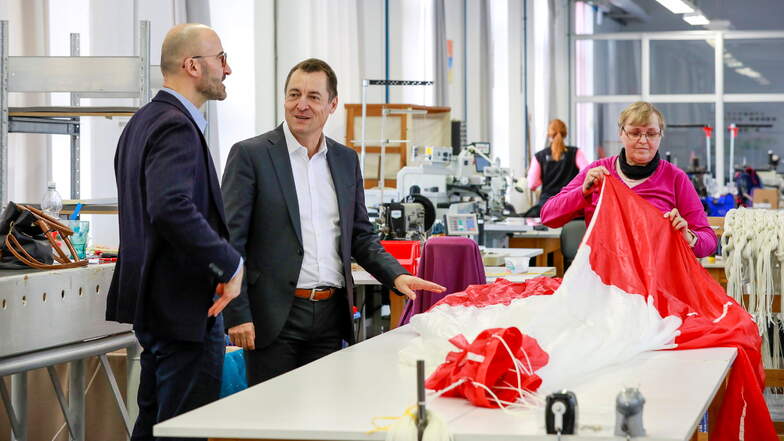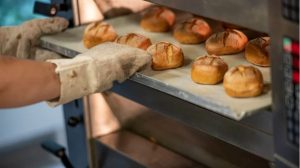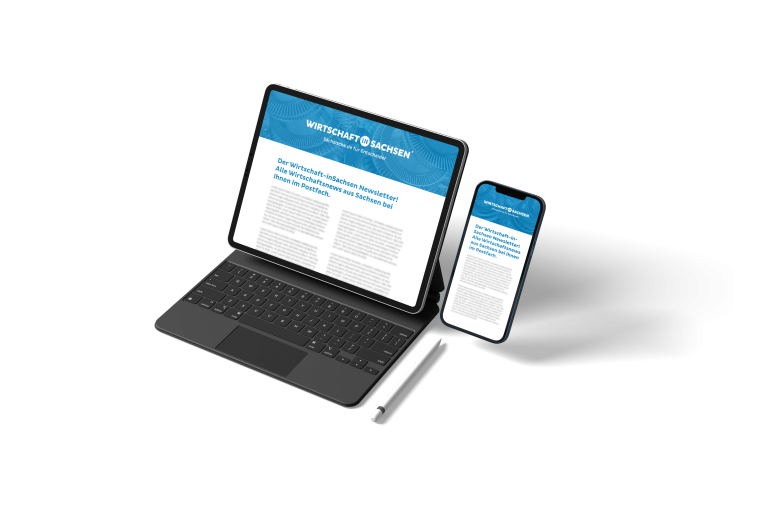A 7.5 million order is on hold at the Seifhennersdorf parachute manufacturer. An FDP member of parliament asks why.
By Holger Gutte
When it comes to parachutes, Sächsische Spezialkonfektion GmbH - Spekon for short - is a household name. The textile company from Lusatia has been one of the market leaders among parachute manufacturers worldwide for many years. "We have focused primarily on rescue parachutes. That is our core business," says Spekon managing director Serdar Kaya.
Every glider needs at least one rescue parachute. With the spring, the gliding schools become active. This is also the beginning of the main season at Spekon. Between 200 and 300 rescue parachutes alone are produced each year. "If you were to compare it to a car, you could say: we don't build a Mercedes, but we don't build a Dacia either. We build a VW Golf," Serdar Kaya describes. And that's what makes the company so interesting for sailing clubs.

However, military and sports parachutes are still manufactured at Spekon on a contract basis. "Former world champion Marco Pflüger works in our development department," says the managing director, not without pride. The Austrian national team, for example, jumps with Spekon sports parachutes.
The traditional Seifhennersdorf company is also in demand for military parachutes. And it is not only the German armed forces that are equipped with them. The range of parachutes from Spekon is wide and extends to cargo nets with which vehicles, containers and other items weighing up to nine tons can be flown from A to V by helicopter.
Spekon is actually doing well and would like to invest further in Seifhennersdorf. But at the moment, politics is putting the brakes on the company's development. That was one reason why FDP member of parliament Torsten Herbst visited the company on Monday.
Spekon makes an annual turnover of two to three million euros. Customers also include Airbus and Lufthansa. "We have had an existing order with the United Arab Emirates for a year and a half. But it only becomes valid if an export license is available," reports authorized signatory Jens Marche. The order would bring Spekon 7.5 million euros. This would secure production for three years. But there is neither a "no" nor a "yes" from the German government.
"We don't understand this. The United Arab Emirates bought parachutes from us in 2002. They are now 20 years old and need to be replaced. That's why they want new ones from us," he says.
This has implications for Spekon. The company would like to invest at the site, although the conditions here are not ideal. Many buildings on the 50,000 square meter site are unused. In the former Seifhennersdorf clothing factory, around 700 employees worked here in GDR times. Now Spekon employs 35 people.
"We would like to renovate two empty buildings and move there," says Serdar Kaya. But without the major contract, the plans are on hold. "With such a hesitant attitude on the part of politicians, we are only hurting ourselves. In the worst case, parachute manufacturers in other countries will profit from it," he tells the FDP member of parliament.
"What our customers appreciate about us is that the brand name Made in Germany still applies 100 percent here." From development to cutting, sewing to final inspection, everything happens in the factory. Much is still deliberately done by hand.
A sports parachute requires one day for cutting, another for attaching the small parts and three days for sewing. The women who sit at the sewing machines have been loyal to the company for many years.
Spekon has supplied parachutes of all kinds to over 50 countries in recent years. "Including GDR production, we have made over 20,000 rescue parachutes alone," Jens Marche tells us. The textile company, founded in 1842, has been producing parachutes for over 80 years. Customers rely on this experience.








